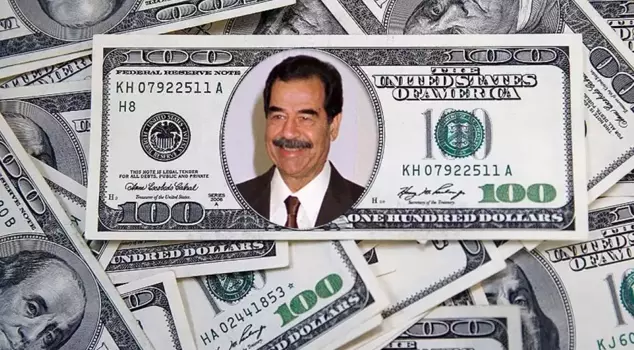
29.11.2024 11:20
Due to counterfeit $50-$100 banknotes, banks, exchange offices, and jewelers halted their transactions, causing an uproar in the markets. While the repercussions of the incident continue, the actions of deposed leader Saddam Hussein in the 1990s to undermine the credibility of the American dollar have come back to the forefront.
In Istanbul, the circulation of counterfeit $50 and $100 banknotes printed abroad has led banks, exchange offices, and jewelers to halt their transactions, reminiscent of the actions of Saddam Hussein, who ruled Iraq from 1979 to 2003.
THE WAR ENDED, THEY ENTERED THE MARKET
During the First Gulf War in 1990, Saddam Hussein began printing counterfeit dollars to undermine the credibility of the American dollar and weaken the American economy. The "Saddam dollar," which was claimed to be 99% real and undetectable under ultraviolet light, was released into the market after the war.
THE FATE OF THE DOLLARS IS STILL A MATTER OF CONCERN
After the U.S. invasion of Iraq, the fate of these banknotes remained a topic of curiosity for many years. Before the invasion, original dollars from the Central Bank of Iraq were also smuggled by the deposed Iraqi regime, in addition to the counterfeit dollars. After the invasion of Iraq in 2004, the whereabouts of an estimated one billion dollars from the Central Bank of Iraq was always sought. In 2003, the New York Times claimed that three billion dollars of Saddam's government were located in banks in Syria and Lebanon. According to the newspaper, another detail mentioned in the same report was that more than 500 million dollars belonging to Iraqis were found in banks in Turkey.
OPPORTUNISTS ARE AT WORK
On the other hand, as transactions halted due to the counterfeit dollars released into the market, opportunists emerged. They increased the commission by 10-30%, dropping the dollar exchange rate from 34.53 lira to as low as 25 lira. Some jewelers and exchange offices are calculating the current dollar rate of 34.53 TL at 30 TL. In fact, there are even those who have no limits in opportunism, dropping the rate to as low as 25 TL.
"THEY ARE OFFERING LOW PRICES"
Citizens reacting to the exploitation of this situation say, "I bought the dollar two years ago. When I want to sell it, they bring up the counterfeit dollar issue and offer a low price. However, the counterfeit dollar issue has only been around for two months. But they are trying to profit by being opportunistic."